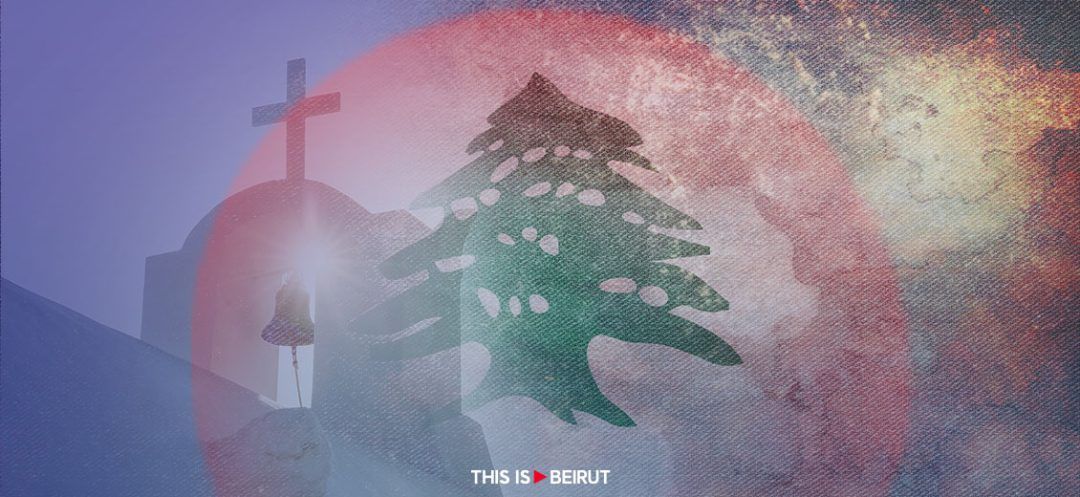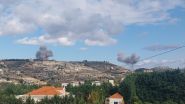
Morounoye lo mtaxe, which means “the Maronite is undisciplined,” is essentially the first "lesson" that the Maronite bishop of Batroun, Mounir Khairallah, imparted to his theology students in Kaslik at the beginning of the year. It's a lesson with a dual nature, both commendable and bitter. Yes, Maronites are strong-willed, and there's nothing wrong with having character. But these strong-willed individuals don't know how to "get in line," to act together, and that's their weakness.
"Throughout our history, we've had problems with authority, and when authority was entrusted to us, we dismantled it. That's the summary of our history," the bishop declares, lamenting (like any sensible person) the Maronites' inability to agree, following the end of Michel Aoun's term, on a candidate for the presidency.
It's attributed to Nabih Berri that "Christians no longer know what their role is. They all want to be in charge." This fundamental flaw of the Maronites, which obstructs both political maturation and the balanced economic development of Lebanon and its human community, was noticed more than anyone else by Fouad Chehab, founder of the Lebanese Army. Elected president in 1958, Chehab asked Father Louis-Joseph Lebret, founder of the IRFED (International Institute for Research and Training, Education and Development), to conduct a socio-economic study across the country in 1960. Between 1960 and 1964, this institute focused on issues such as state reform, elite renewal, economic and social development, respect for institutions and coexistence in a complex society marked by the weight of clientelism and political sectarianism.
What Lebanon Lacks the Most
At the end of the IRFED investigation, Lebret reportedly arrived at the following conclusion: "What Lebanon lacks the most, more than water, roads or electricity, are teams of people who are totally dedicated to the public good and who work together at all levels to solve the multitude of problems related to economic development and human upliftment."
"If there isn't a change in mentality among young Lebanese elites," he warned, "if a new breath from an intellectual and ethical revolution doesn't sweep the country, development will be fragile, and Lebanon will not have fulfilled its task of internal cohesion or its supranational task as a civilizing center. The raison d'être and durability of Lebanon are essentially human in nature. Banking on success from exceptional human quality means nothing if this quality is diminished due to accentuated, fierce individualism. It's the dimension of the national collective and the universal collective that could save the soul and nation of Lebanon."
Raison d'être and Durability
These essential points conveyed by a man who jealously guards the memory of the IRFED mission are as clear as day. They speak particularly of our "fierce individualism," which visibly ravages all levels of our national existence, from stamp duties to diplomas, from the power grid to bill collection, from taxes to garbage.
The proliferation of success stories of Lebanese abroad is there to prove this, and the converse is also true. Whether these successes manifest in the world of sports, fashion, business, science, art or the judiciary, their achievements are like water poured into a wicker basket. They are useless for nation-building. All they bring us is nostalgia for what our life would have been if lived elsewhere.
Father Lebret, who inspired Pope Paul VI's encyclical Populorum Progressio on the development of peoples, also speaks of the "raison d'être and durability" of Lebanon and its contribution to the "universal collective." This is the other aspect of our delay. De Gaulle had already told us in a speech at USJ: to "save the soul" of Lebanon, as Father Lebret says, we need to develop a sense of the State at the expense of that of the tribe. But this sense exists; it's the spirit of service and mutual aid. It was common in our villages in the form of all the aouneh, or community help. That's our culture, our heritage, the antidote to the "fierce individualism" that weighs down our national life, the fusion of private interest with the common good. To serve is to help oneself.
For about 50 years now, the term "Lebanonization" has referred to the process of a country's fragmentation. Is this the example we want to set for the world? No, of course not! Besides, in the end, contrary to what Larousse may say, Lebanon hasn't fragmented: its borders hold, and will hold firm. Furthermore, and this includes all communities, we have forever internalized the words of John Paul II affirming that "Lebanon is more than a country," that it is "a message, a model of pluralism and tolerance for the East and West."
Although we have endeavored to prove otherwise, and despite all the difficulties of a blocked national life taken hostage, we remain deeply true to this model, and the whole world is waiting for us to demonstrate it. The suffering of the last century and the suffering we've experienced since 2019, we experience it together. It's not wrong to believe that imperceptibly, this unites us beyond our various affiliations. It will not be in vain, as long as we tirelessly continue to defy fear and find the courage to denounce all impostures, whether they come from the East or the West, in order to remain the model of pluralism that we derive from our history.
"Throughout our history, we've had problems with authority, and when authority was entrusted to us, we dismantled it. That's the summary of our history," the bishop declares, lamenting (like any sensible person) the Maronites' inability to agree, following the end of Michel Aoun's term, on a candidate for the presidency.
It's attributed to Nabih Berri that "Christians no longer know what their role is. They all want to be in charge." This fundamental flaw of the Maronites, which obstructs both political maturation and the balanced economic development of Lebanon and its human community, was noticed more than anyone else by Fouad Chehab, founder of the Lebanese Army. Elected president in 1958, Chehab asked Father Louis-Joseph Lebret, founder of the IRFED (International Institute for Research and Training, Education and Development), to conduct a socio-economic study across the country in 1960. Between 1960 and 1964, this institute focused on issues such as state reform, elite renewal, economic and social development, respect for institutions and coexistence in a complex society marked by the weight of clientelism and political sectarianism.
What Lebanon Lacks the Most
At the end of the IRFED investigation, Lebret reportedly arrived at the following conclusion: "What Lebanon lacks the most, more than water, roads or electricity, are teams of people who are totally dedicated to the public good and who work together at all levels to solve the multitude of problems related to economic development and human upliftment."
"If there isn't a change in mentality among young Lebanese elites," he warned, "if a new breath from an intellectual and ethical revolution doesn't sweep the country, development will be fragile, and Lebanon will not have fulfilled its task of internal cohesion or its supranational task as a civilizing center. The raison d'être and durability of Lebanon are essentially human in nature. Banking on success from exceptional human quality means nothing if this quality is diminished due to accentuated, fierce individualism. It's the dimension of the national collective and the universal collective that could save the soul and nation of Lebanon."
Raison d'être and Durability
These essential points conveyed by a man who jealously guards the memory of the IRFED mission are as clear as day. They speak particularly of our "fierce individualism," which visibly ravages all levels of our national existence, from stamp duties to diplomas, from the power grid to bill collection, from taxes to garbage.
The proliferation of success stories of Lebanese abroad is there to prove this, and the converse is also true. Whether these successes manifest in the world of sports, fashion, business, science, art or the judiciary, their achievements are like water poured into a wicker basket. They are useless for nation-building. All they bring us is nostalgia for what our life would have been if lived elsewhere.
Father Lebret, who inspired Pope Paul VI's encyclical Populorum Progressio on the development of peoples, also speaks of the "raison d'être and durability" of Lebanon and its contribution to the "universal collective." This is the other aspect of our delay. De Gaulle had already told us in a speech at USJ: to "save the soul" of Lebanon, as Father Lebret says, we need to develop a sense of the State at the expense of that of the tribe. But this sense exists; it's the spirit of service and mutual aid. It was common in our villages in the form of all the aouneh, or community help. That's our culture, our heritage, the antidote to the "fierce individualism" that weighs down our national life, the fusion of private interest with the common good. To serve is to help oneself.
For about 50 years now, the term "Lebanonization" has referred to the process of a country's fragmentation. Is this the example we want to set for the world? No, of course not! Besides, in the end, contrary to what Larousse may say, Lebanon hasn't fragmented: its borders hold, and will hold firm. Furthermore, and this includes all communities, we have forever internalized the words of John Paul II affirming that "Lebanon is more than a country," that it is "a message, a model of pluralism and tolerance for the East and West."
Although we have endeavored to prove otherwise, and despite all the difficulties of a blocked national life taken hostage, we remain deeply true to this model, and the whole world is waiting for us to demonstrate it. The suffering of the last century and the suffering we've experienced since 2019, we experience it together. It's not wrong to believe that imperceptibly, this unites us beyond our various affiliations. It will not be in vain, as long as we tirelessly continue to defy fear and find the courage to denounce all impostures, whether they come from the East or the West, in order to remain the model of pluralism that we derive from our history.
Read more



Comments